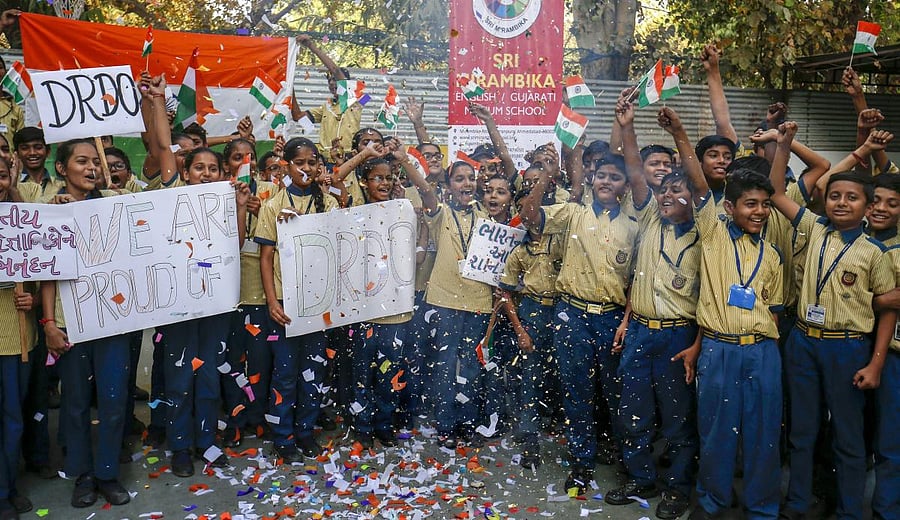
Buoyed by the comeback of national security narrative in the poll discourse after the successful anti-satellite missile test 'Mission Shakti', the BJP on Wednesday alleged that the Congress-led UPA did not give permission to scientists to develop such a capability.
They also said the nation is now in the "safe hands" of Prime Minister Narendra Modi.
The BJP, which was on backfoot after the Rs 6,000 per month minimum income guarantee announcement by Rahul Gandhi, got a lease of fresh energy with the announcement of India's entry into the elite club of four nations (the others being US, Russia and China).
Not surprisingly, the prime minister, before making this announcement, alerted people that he will make an address to the nation to give an "important message".
After the message was delivered, the BJP fielded a battery of Union Ministers — Arun Jaitley, Nirmala Sitharaman and Rajyavardhan Rathore — to highlight the significance of the decision.
While defence experts cautioned against the move being turned into a "political football", the Opposition and the Congress played out their respective scripts.
Soon after, Congress leader Ahmed Patel said that the programme was initiated during the UPA regime. Jaitlely later said that those who pat their back falsely get exposed.
Jaitley recalled that when India had test-fired Agni V missile in April 2012, then DRDO chief V K Saraswat had said India could now develop an anti-satellite missile but the "government of Sonia-Manmohan did not give its nod".
"The last UPA government had neither the capability nor any clarity in its defence policy. It did not put its trust in the capability of scientists and hence did not give permission to any such operation," he said.
He also hit back at the Opposition for criticising the timing of the announcement and their questions about why it was announced by the prime minister and not the DRDO. Some parties also knocked the Election Commission's doors.
Congress spokesperson Abhishek Singhvi was acerbic: "Hope more space shootings and Star Wars are not planned in next six weeks, nor more State of Nation addresses. Neither fear nor frustration nor desperation nor seeing of electoral writing on wall should lead to such events and such timing".
CPM asked the Election Commission whether it permitted the ruling party to "politically colour" the achievements of Indian scientists during the election season.
If the election narrative remains rooted to national security, the BJP, which has been projecting Narendra Modi as a "strong, decisive" leader citing the post-Pulwama aerial strike in Balakot last month and post-Uri surgical strike across the border in 2016, stands to benefit.
Opposition Congress is keen that the narrative is shifted to issues of agrarian distress and joblessness, where it can cite its decision to offer farm loan waiver and MIG as game changers.
The Opposition parties would also be happy to see an election in which arithmetic matters more than emotion, as they have sewn numerically strong caste alliances.

